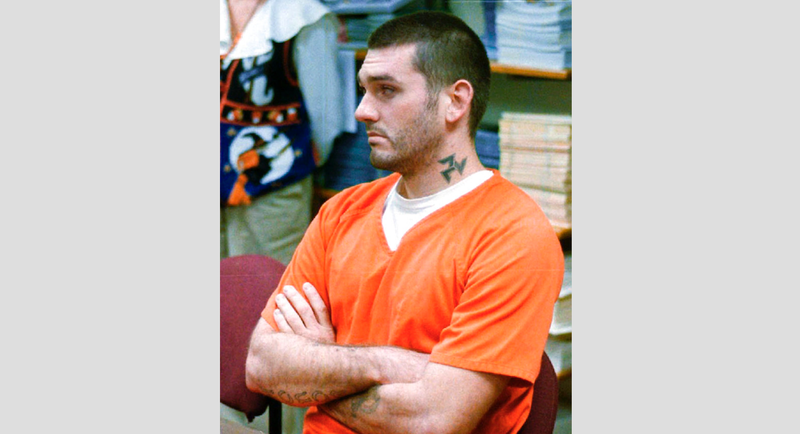A federal attorney argued in a court filing Friday that a condemned killer scheduled to be executed in 16 days is not legally entitled to a stay for the sake of a new DNA comparison requested by his lawyers.
The attorneys for Daniel Lewis "Danny" Lee filed a motion last week in U.S. District Court in Little Rock requesting that the DNA in a hair collected as evidence 23 years ago be compared with that of others who originally were identified as suspects. Those suspects were never charged.
In Friday's filing, the U.S. Department of Justice called the defense's motion unlawful.
Lee, 46, was convicted in the Jan. 15, 1996, slaying of a Pope County family. The victims -- William Mueller, 52, his wife, Nancy, 28, and her daughter, Sarah Powell, 8 -- were asphyxiated with plastic bags and dumped into the Illinois Bayou outside Russellville. Their bodies were found months later.
Lee and his accomplice, Chevie Kehoe, 47, were arrested in 1997 and convicted in 1999 of the triple murder. Jurors recommended life for Kehoe and death for Lee, even though prosecutors described Kehoe as the ringleader and the one who killed Sarah.
Attorneys for Lee have pointed out that Sarah's grandmother and other family members are opposed to Lee's execution, but jurors recommended death only for Lee after hearing evidence of his violent history, according to court documents.
In Friday's filing, John Pellettieri, attorney for the Department of Justice, stated that no new DNA comparison is warranted and that the defense's motion was "untimely."
Additionally, the motion calls for a comparison using familial DNA, which Pellettieri has argued is beyond legal boundaries.
Lee originally was scheduled to die by lethal injection in December 2019, but his execution was postponed after a U.S. district judge in Washington, D.C., ruled that the Department of Justice was short-circuiting the process by introducing a new lethal injection protocol without congressional approval.
That ruling was overturned by an appellate court, and Lee's new execution date was set. He is now scheduled to die by lethal injection July 13 at the U.S. penitentiary in Terre Haute, Ind.
Pellettieri pointed out in his filing that Lee can't show that he "possessed a good reason" for his motion considering he waited until his execution was scheduled "for a second time." He added that there have been "multiple and repeated filings challenging his convictions and sentence" and none contained any mention of the specific DNA sample in question until recently.
Defense attorneys said the hair found in a cap thought to have been worn by Lee during the murders was tested by an independent lab in 2007, and it did not match Lee's DNA. Prosecutors said at his trial in 1999 that the hair belonged to Lee.
In their motion last week, attorneys asked that the DNA findings be compared with other suspects named early in the case. Pellettieri stated in his latest filing that the federal government does not possess DNA profiles for the original suspects. Therefore, he wrote, Lee is not legally entitled to a DNA comparison with those men because the government is legally "prohibited" from fulfilling such a request.
Pellettieri also wrote that any result from the DNA comparison "would not undermine the overwhelming evidence of Lee's guilt."
It was clear, he stated, that the evidence "clearly establishes" that Lee committed the Mueller murders with Kehoe.
One of the most critical witnesses for the prosecution during the trial was Kehoe's mother, Gloria Kehoe, who said she heard her son tell her twice that Lee participated in the murders. Additionally, property belonging to the Muellers was collected after Kehoe's arrest, and authorities found Lee's fingerprints on them, prosecutors said.
"In light of this evidence, even if DNA analysis determined that the hair in the cap belonged to [someone else], that determination would not raise a reasonable probability that Lee did not participate with Kehoe in the murders," Pellettieri wrote.
If the execution takes place, Lee would be the first federal death row inmate to be executed since 2003.

